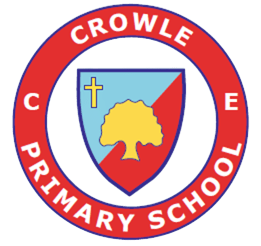Maths Interventions
You Can Toucan was introduced across school in January 2019 his message to all our pupils is clear.
Classroom Beliefs
- Mistakes are valuable.
- Everyone can learn Maths.
- Questions are really important.
- Depth is more important than speed.
- Maths is about making connections.
- Everyone makes MARVELLOUS MISTAKES!
We have high aspirations for all our children. In acknowledging that our pupils, identified as SEND and those who have barriers to their learning in a single subject, can be fully immersed in the maths curriculum alongside their peers through well pitched, matched and differentiated lessons. The introduction of a maths mastery approach takes the whole class through new learning so that both knowledge and understanding is embedded.
What does a maths lesson look like for a child who is working towards expected attainment?
The maths lesson will not look obviously different for these children due to the skills of the class teachers in matching the objective to the cohort and pitching the pace and range of questions appropriately. The teacher then differentiates the resources and style of questioning for children who are slower to grasp the concept. Teaching assistants are deployed to children who may need further explanation during the whole class learning or closer monitoring of misconceptions during independent tasks. Concrete resources, working walls and practise questions are available for all learners throughout the lesson. Designing the way we deliver maths in this way has increased inclusion in maths lessons.
What does a maths lesson look like for a child who is working significantly below the expected attainment level/key stage?
All reasonable adjustments will have been implemented in consultation with the SENDCo and possibly outside agencies. They will be working where ever practical on the same objective just at a lower level, this enables them to work in the classroom, benefiting from teacher input as well as working with a teaching assistant. The maths presented will be matched to the level they are working with and is likely to be differentiated so learning is accessed in a concrete rather than abstract approach. There may be some occasions where their level cannot be matched to the class objective - in these cases it may be beneficial for them to work with a teaching assistant away from their peers.
What extra support will my child receive to close the gaps?
We are developing a range of interventions that can meet individual needs of our pupils. There is no one size fits all in teaching children with SEND.
Our maths intervention plan includes the following:
Pre - Teach Sessions during the afternoon session or before school. These sessions can be 1:1 or small group led by a teacher or a teaching assistant. The aim of the session is to give children who are slower to pick up new learning some prior knowledge before the main lesson. The impact is raised self esteem in the main lesson and the children are more able to maintain the pace.
Post - Teach Sessions during the afternoon session or lunchtimes. These sessions are designed to mop up misconceptions from the mornings lesson so that children are ready to move on in their learning the following day. This can include guided self assessment, revisiting questions from either whole class or independent learning or practicing number fluency that had impacted on their ability to keep up with the main lesson.
First Class Number is a small group intervention currently offered to children in KS2 by Nicky Jackson who has just completed the training. The intervention is a mastery based intervention which brings maths interventions in line with our maths curriculum. We hope following additional training that Nicky will be able to deliver First Class Post interventions for KS1 and EYFS.
Maths Plus 1 is a 1:1 intervention that children complete with a teaching assistant during the afternoon session. The manual teaches the building blocks for number and introduces simple calculations.
